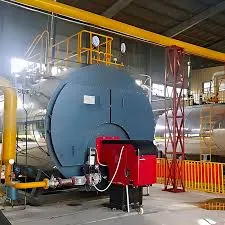
Ara . 12, 2024 11:49 Back to list
temperature of boiler water
Understanding the Temperature of Boiler Water Importance and Implications
Boilers are essential components in various industrial and residential applications, providing hot water and steam for heating, power generation, and numerous production processes. One of the critical factors that influence the efficiency and safety of a boiler system is the temperature of the boiler water. This article explores the significance of boiler water temperature, its optimal levels, and the implications of temperature fluctuations.
The Importance of Boiler Water Temperature
The temperature of boiler water directly affects its efficiency and performance. Higher temperatures typically result in greater steam production and improved energy transfer, which can lead to enhanced operational efficiency. However, excessively high temperatures may lead to increased wear and tear on boiler components, ultimately resulting in costly repairs and potential system failures.
Conversely, if the water temperature is too low, it can cause incomplete combustion, leading to wasted fuel and increased emissions. In addition, low temperatures can foster the development of corrosion and scale inside the boiler, which significantly impacts its longevity and performance. Therefore, maintaining the right temperature is crucial for optimal boiler operation.
Optimal Temperature Levels
The optimal temperature for boiler water varies based on the type of boiler and its intended use. For example, residential boilers typically operate at temperatures around 140°F to 180°F (60°C to 82°C). On the other hand, industrial boilers may be set to operate at much higher temperatures, often exceeding 212°F (100°C) or operating under pressure to achieve even higher temperatures.
It is essential to consult the manufacturer’s specifications and guidelines to determine the appropriate temperature settings for a specific boiler. Additionally, operators should consider factors such as the desired heat output, the characteristics of the heating system, and the local climate conditions when determining optimal temperature settings.
temperature of boiler water

Measuring and Monitoring Boiler Water Temperature
Accurate measurement and continuous monitoring of boiler water temperature are vital for safely operating a boiler system. Various instruments, such as thermocouples and temperature gauges, can be employed to measure temperature levels accurately. Regular inspections and calibrations of these instruments are necessary to ensure their reliability.
In modern boiler systems, advanced control systems are often implemented that automate the monitoring process. These systems can detect anomalies in water temperature, alert operators, and make adjustments in real time to maintain optimal operating conditions. The integration of these technologies not only enhances safety but also aids in energy efficiency by preventing overheating or excessive cooling.
Implications of Temperature Fluctuations
Temperature fluctuations in boiler water can lead to several issues. Rapid temperature changes can induce thermal shock, causing stress on the boiler's materials and potentially leading to fractures or other failures. Moreover, inconsistent water temperatures can result in erratic steam production, which can disrupt processes requiring stable heat output.
Additionally, if the water temperature falls below the recommended range, it can create conditions favorable for corrosion and scale formation. These issues may necessitate more frequent maintenance and can result in downtime that affects overall productivity.
Conclusion
The temperature of boiler water is a critical aspect that influences the operational efficiency and longevity of boiler systems. Maintaining optimal temperature levels is essential for maximizing efficiency, reducing emissions, and minimizing wear and tear on system components. By investing in accurate measurement technology and implementing robust monitoring systems, operators can ensure the safe and efficient operation of their boiler systems, ultimately leading to enhanced performance and reduced maintenance costs. As industries continue to prioritize energy efficiency and sustainability, understanding and managing boiler water temperature will remain a key focus for operators around the globe.
-
Efficient Biomass Fired Hot Water Boiler | AI Heating Solution
NewsAug.01,2025
-
High-Efficiency Gas Thermal Oil Boilers | HPT Models
NewsJul.31,2025
-
Oil Fired Hot Water Boilers Sale - High Efficiency & Affordable
NewsJul.31,2025
-
High-Efficiency Commercial Oil Fired Steam Boiler for Industry
NewsJul.30,2025
-
High-Efficiency Biomass Fired Thermal Oil Boiler Solutions
NewsJul.30,2025
-
High Efficiency Gas Fired Thermal Oil Boiler for Industrial Heating
NewsJul.29,2025
Related PRODUCTS






















